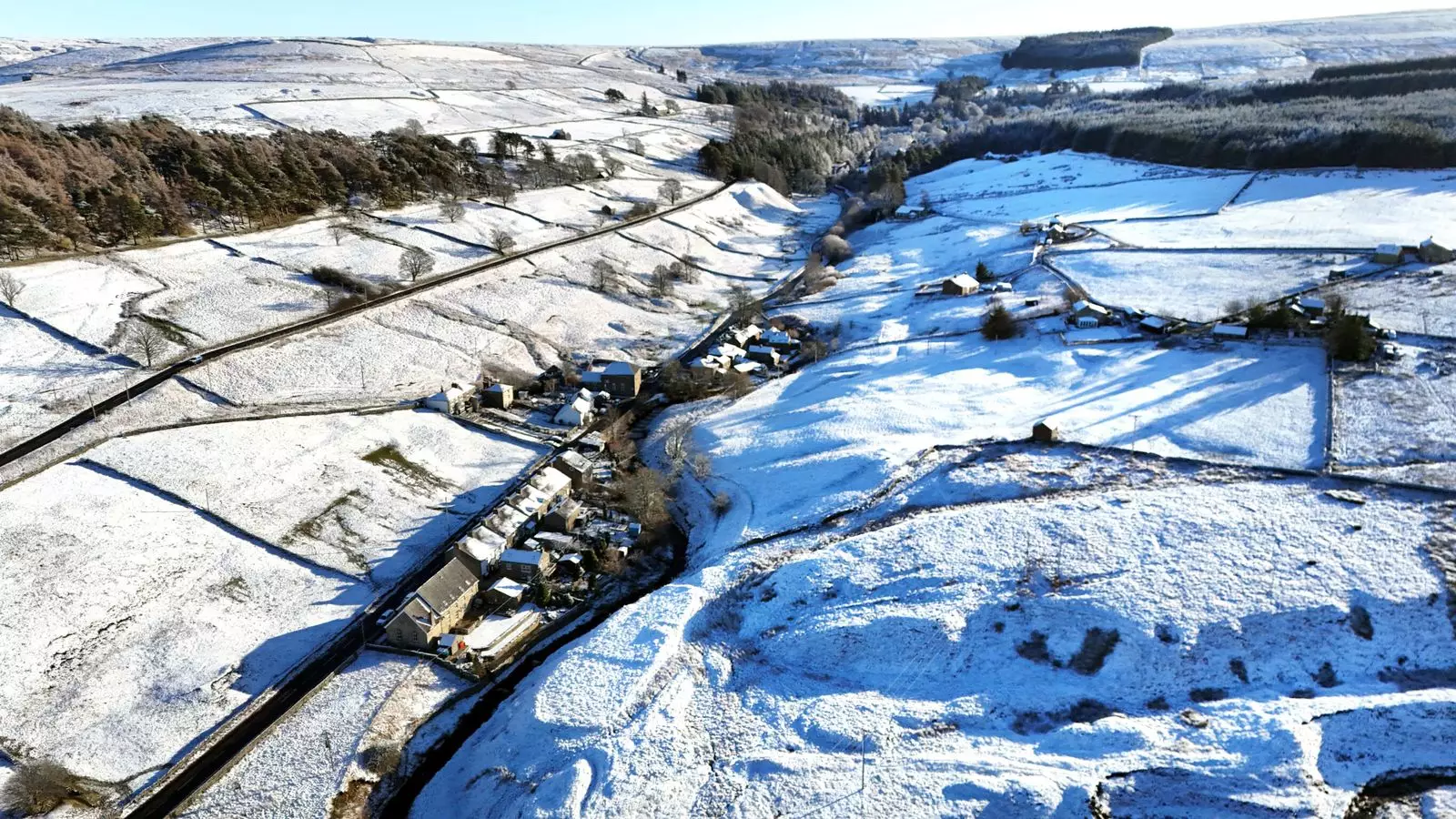The UK is bracing itself for a significant cold snap, with predictions indicating that temperatures could plunge as low as minus 8 degrees Celsius. The impending weather, accompanied by health warnings and escalating concerns for vulnerable populations, paints a concerning picture of the winter that is hitting the country hard.
To prepare for the expected drop in temperatures, the UK Health Security Agency (UKHSA) has issued health alerts focusing on the potential risks associated with extreme cold. These warnings are particularly aimed at vulnerable demographics, such as the elderly (65 years and older) or individuals suffering from chronic health conditions. The amber alerts, declared to be in effect from Thursday noon until the following Wednesday, serve as a cautionary note regarding the dangers of severe cold. Poor weather conditions can significantly increase the risk of illness or even fatalities, reminding all of us about the critical importance of taking precautions during these challenging times.
The harsh weather conditions anticipated across the country will not only challenge the public health infrastructure but may also strain the emergency services. The NHS organizations have issued specific advice to the public, such as avoiding outdoor activities during particularly cold or icy times of the day. The aim is to keep people safe while preventing unnecessary strain on health services. This indicates that adherence to preventive measures is vital for safeguarding lives during the cold snap.
Meteorologists, including Dan Stroud from the Met Office, have informed the public that widespread frost is expected across the United Kingdom, from Land’s End in Cornwall to John O’Groats in Scotland. Such a vast expanse of frost is not just a nuisance; it signifies that the weather will be unseasonably cold for this period of the year. Stroud highlights that while there may be a brief respite in temperatures by the end of the weekend, another significant drop can be expected early next week.
Forecasts predict that regions such as northern England and Scotland may see the most severe weather conditions. With such drastic temperature fluctuations, there are rising concerns about travel safety and preparedness for emergencies. The clarity with which the Met Office communicates these forecasts ensures that the public remains aware of the impending risks.
In response to the drastic cold weather, local authorities are rolling out emergency accommodations for individuals facing homelessness. London boroughs activated protocols allowing additional beds to be available for those in need, reflecting a compassionate response to the harsh conditions that are likely to increase the number of people seeking refuge from the cold. These emergency measures underscore the necessity of proactive community engagement to protect the most vulnerable populations, thus highlighting the importance of social support systems.
Alongside these emergency actions, various weather warnings have been issued, especially in relation to snow and ice. The Met Office’s yellow warnings indicate the high likelihood of icy surfaces, making travel perilous in affected areas. Expected snowfall could be substantial, particularly in northern areas, raising expectations for difficult travel conditions. The mention of potential snow drifts and freezing rain adds to this sense of urgency, as it creates a landscape that could quickly become impassable.
Compounding the frigid temperatures, the recent major incident declarations in Greater Manchester due to flooding also highlight how unpredictable and extreme weather can cause chaos. Just as the country braces for risky temperatures and snow, heavy rain has already wreaked havoc in other parts of the UK, closing train lines and forcing evacuations. This continuing pattern of erratic weather may be seen as a symptom of broader climate-related changes impacting weather systems.
The interplay between flooding and freezing temperatures speaks volumes about the multifaceted challenges the UK faces regarding weather events. With extreme weather phenomena becoming more common, addressing these challenges will require collaborative efforts spanning government, health agencies, and community organizations to build resilient systems capable of responding to such emergencies effectively.
As temperatures across the UK approach alarming lows, it becomes essential for both individuals and organizations to prepare adequately and respond swiftly to ensure safety and well-being. Proper awareness and community cooperation will be the keys to weathering not just this cold snap, but the growing variability of seasonal weather patterns in the years to come.



Leave a Reply